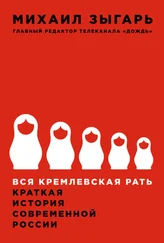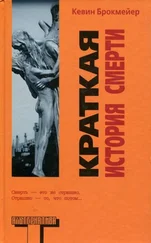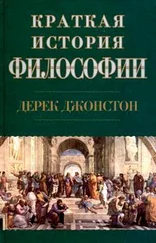См.: McKee, Elsie Ann . Katharina Schutz Zell (Studies in Medieval and Reformation Thought) (2 Volume set) (v. 1 & 2) (English and German Edition). Leiden: Brill, 1998.
M. Wiesner . Women’s response to the Reformation // R. Po-Chia Hsia, The German People and the Reformation. Ithaca, N. Y.: Cornell University Press, 1988, p. 160.
См. главу 4.
S. McSheffrey . Gender and Heresy: Women and Men in Lollard Communities, 1420–1530. Philadelphia: University of Pennsylvania Press, 1995.
M. Aston . Lollard Women Priests? // Journal of Ecclesiastical History 31, no. 4 (1980): 441–461.
T. Taylor . The Prehistory of Sex: Four Million Years of Human Sexual Culture. London: Fourth Estate, 1996, p. 7. Ср.: MacCulloch . Reformation, p. 608.
То есть во всех женщинах.
J. Hockenbery Dragseth . Martin Luther’s Views on Bodies, Desire, and Sexuality // Oxford Research Encyclopedias: Religion, 2016: DOI:10.1093/acrefore/9780199340378.013.35.
Ozment . Reinventing Family Life, p. 22.
S. Burghartz . Ordering Discourse and Society: Moral Politics, Marriage, and Fornication during the Reformation and Confessionalisation Process in Germany and Switzerland // H. Roodenburg and O. Spierenburg (eds.). Social Control in Europe Volume 1: 1500–1800. Columbus: Ohio State University Press, 2004, pp. 78–98.
Witte . From Sacrament to Contract, p. 92.
K. Crowther . From Seven Sins to Lutheran Devils: Sin and Social Order in an Age of Confessionalization // P. Gilli (ed.). Les pathologies du pouvoir. Leiden: E. J. Brill, 2016, pp. 481–520.
K. Kurihara . Celestial Wonders in Reformation Germany. Abingdon: Routledge, 2014, pp. 23, 45; A. Walsham . Sermons in the Sky: Apparitions in Early Modern Europe // History Today (April 2010): 56–63; U. Lotz-Heumann . The Natural and Supernatural // U. Rublack (ed.). The Oxford Handbook of the Reformation. Oxford: Oxford University Press, 2017, pp. 688–707.
Имеется в виду расколдовывание мира – начатый еще со времен Античности процесс отказа от объяснения природных феноменов через мистические и магические силы (см. труды М. Вебера «Наука как призвание и профессия» и «Протестантская этика и дух капитализма»).
И напрасно: «Регрессионный анализ показал, что наиболее значительными предикторами веры в сверхъестественное были низкий уровень общего понимания физического мира и интуитивный способ мышления». См.: Lindeman M., Svedholm-Häkkinen A.M. Does Poor Understanding of Physical World Predict Religious and Paranormal Beliefs? // Applied Cognitive Psychology. 2016. № 30. P. 736–742.
K. Thomas . Religion and the Decline of Magic. London: Weidenfeld and Nicholson, 1971; H. Geertz . An Anthropology of Religion and Magic, I // Journal of Interdisciplinary History 6 (1975): 71–89; K. Thomas . An Anthropology of Religion and Magic, II // Journal of Interdisciplinary History 6 (1975): 91–109.
Цит. по: Вебер М. Избранное: Протестантская этика и дух капитализма. М.: РОССПЭН, 2006. С. 545; Вебер М. Избранные произведения. М.: Прогресс, 1990. С. 733–734.
M. Weber . The Protestant Ethic and the Spirit of Capitalism. Trans. T. Parsons. London: George Allen & Unwin, 1930; E. Troeltsch . Protestantism and Progress: The Significance of Protestantism for the Rise of the Modern World. Trans. W. Montgomery. London: Williams & Norgate, 1912.
Цит. по: Вебер М. Избранное: Протестантская этика и дух капитализма… С. 150.
A. J. Carroll . Disenchantment, Rationality, and the Modernity of Max Weber // Forum Philosophicum 16, no. 1 (2001): 119.
J. A. Josephson-Storm . The Myth of Disenchantment. Chicago: University of Chicago Press, 2017, pp. 294–295.
Цит. по: Вебер М. Избранное: Протестантская этика и дух капитализма… С. 143.
E. Troeltsch . Renaissance and Reformation // L. Spitz ((ed.). and trans.). The Reformation: Basic Interpretations. Lexington, MA: Heath, 1972, pp. 261–296; Thomas . Religion and the Decline of Magic; E. Cameron, Enchanted Europe: Superstition, Reason and Religion 1350–1750. Oxford: Oxford University Press, 2010; A. Walsham . The Reformation and the Disenchantment of the World Reassessed // Historical Journal 51, no. 2 (2008): 497–528.
T. Kuhn . The Structure of Scientific Revolutions, 2nd (ed.). Chicago: University of Chicago Press, 1975; M. Foucault . The Order of Things: An Archaeology of the Human Sciences. London: Routledge, 2002.
Связь религии, суеверий, молитв и веры в чудеса с незнанием была задолго до К. Томаса сформулирована Полем Анри Гольбахом (1723–1789), французским философом эпохи Просвещения: «Незнание естественных причин заставило человека создать богов; обман превратил их во что-то грозное; представление об этих свирепых божествах преследовало человека, нисколько не делая его лучше, заставляло его бесполезно трепетать перед ними, наполняло его ум нелепыми фантазиями, мешая прогрессу его мысли и препятствуя его поискам счастья»; «Если незнание природы породило богов, то познание ее должно их уничтожить»; «Объяснять явления природы при помощи чудес – значит просто утверждать, что истинная причина этих явлений неизвестна; приписывать их какому-то богу – значит сознаваться в том, что не знаешь возможностей природы и нуждаешься в каком-нибудь слове для их обозначения, значит верить в магию». См.: Гольбах П.А. Избранные произведения. В 2 т. Т. 1. М.: Наука, 1963. С. 333, 375, 536.
Читать дальше
![Хелен Пэриш Краткая история: Реформация [litres] обложка книги](/books/389963/helen-perish-kratkaya-istoriya-reformaciya-litres-cover.webp)
![Юваль Ной Харари - Sapiens. Краткая история человечества [litres]](/books/34310/yuval-noj-harari-sapiens-kratkaya-istoriya-cheloveche-thumb.webp)




![Джон Херст - Краткая история Европы [litres]](/books/389962/dzhon-herst-kratkaya-istoriya-evropy-litres-thumb.webp)
![Пол Стретерн - Расцвет и падение [Краткая история 10 великих империй] [litres]](/books/390297/pol-stretern-rascvet-i-padenie-kratkaya-istoriya-10-thumb.webp)
![Джон Норвич - Краткая история Франции [litres]](/books/400778/dzhon-norvich-kratkaya-istoriya-francii-litres-thumb.webp)
![Уильям Байнум - Краткая история науки [litres]](/books/412489/uilyam-bajnum-kratkaya-istoriya-nauki-litres-thumb.webp)
![Стивен Хокинг - Краткая история времени. От Большого взрыва до черных дыр [litres]](/books/416997/stiven-hoking-kratkaya-istoriya-vremeni-ot-bolshogo-thumb.webp)
![Мартин Буркхардт - Краткая история цифровизации [litres]](/books/435614/martin-burkhardt-kratkaya-istoriya-cifrovizacii-lit-thumb.webp)
